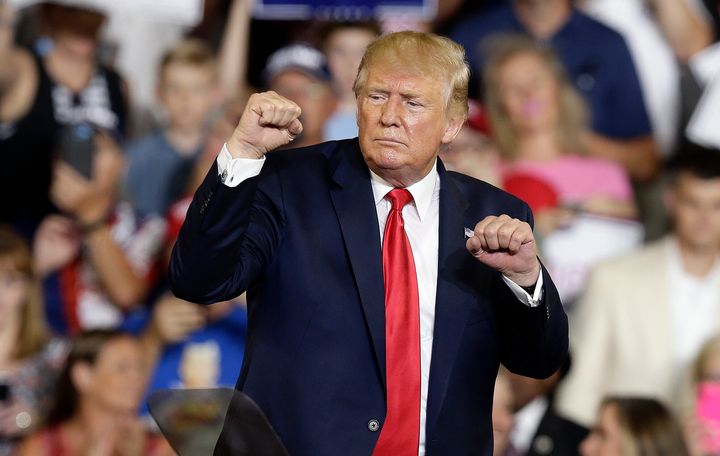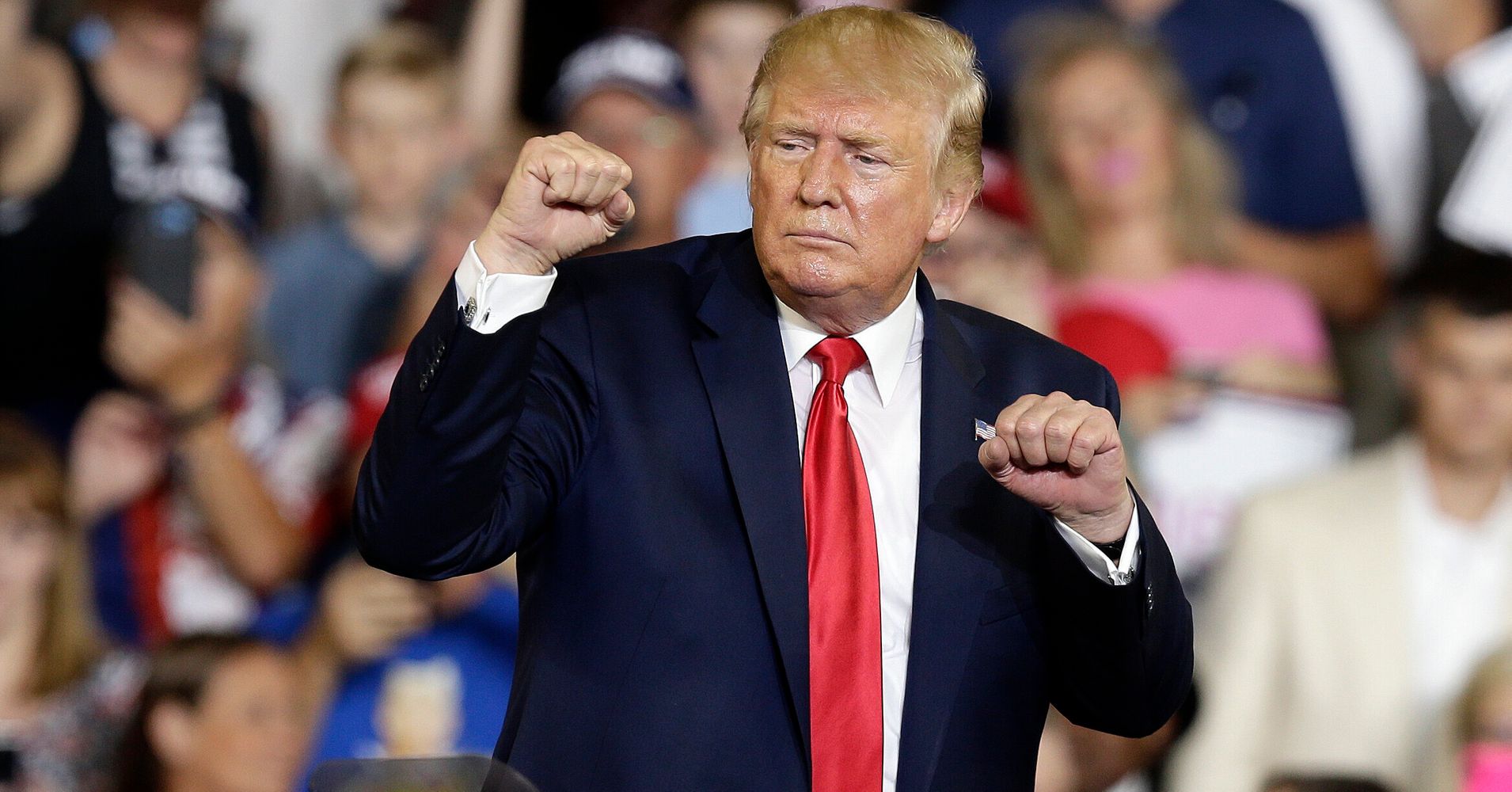[ad_1]
Donald Trump’s rally in North Carolina this week was chilling. The president always throws red meat to his base, but Wednesday was different. Trump advocated kicking a congresswoman out of the country because she had the audacity to criticize his administration. And he looked on, doing nothing, as the predominantly white crowd chanted, “Send her back!”
Scholars of fascism told HuffPost that it was absolutely a “fascist rally” and said they worried about the violence that Trump’s escalating rhetoric could incite. Some House Democrats also warned that Rep. Ilhan Omar (D-Minn.), the primary target of Trump’s racist comments, could be in “imminent danger” and needed extra protection.
Yet much of the discussion about Trump’s rally, and around his other recent racist tweets, has been about whether his move was politically savvy ― and whether his opponents should respond to it or not.
One anonymous House Democrat told CNN host Jake Tapper that what Trump did was “politically brilliant” and that he “won this one.” Another advised that Democrats should simply move on: “The president’s words and actions speak for themselves. We need to focus on the issues that got them here: jobs, health care.”
Aides to two different Democratic House members told HuffPost that on Wednesday, before Trump’s rally, their party leadership presented members with material suggesting that describing the president as “ineffective,” rather than “racist,” was a more politically savvy strategy.
If politicians are at all interested in winning over Black and Brown voters in 2020, they must call Trump’s words what they are: racist.
Jennifer Epps-Addison, co-executive director of the Center for Popular Democracy Action
Racism may be an abstract concept or a merely political issue for some people in Congress and the media, but it’s not for others. Many of us don’t have the luxury of ignoring racism.
“Trump’s racism isn’t a distraction, it’s the problem,” said Aimee Allison, founder of She the People, a group that seeks to empower women of color. “The reality is, for more than half of America, racism is what’s stopping us from paying our bills, getting fair wages, and raising our families with dignity. For women of color ― and women of color especially ― Trump’s bigotry is exactly the point.”
There’s a belief among some pundits that Democrats should just not engage with Trump. Essentially, ignore him, don’t give him more attention ― and he’ll go away. Otherwise, the pundits suggest, Democrats will be alienating voters who may be winnable in 2020.
But what about everyone else? These sorts of analyses, which are common, seem to leave out voters who expect the politicians they support to speak against a president who is making blatantly racist comments.
“Staying silent in the face of white supremacy will not help Democrats win in 2020,” Jennifer Epps-Addison, network president and co-executive director of the Center for Popular Democracy Action, said in an email. “For many of us, calling out Trump’s racism is not a political strategy. It is a survival necessity. Rather than shy away from race, Democrats should be equally unapologetic in their message of inclusion and dignity, as Trump is in his message of exclusion and White nationalism. If politicians are at all interested in winning over Black and Brown voters in 2020, they must call Trump’s words what they are: racist.”

Adrianne Shropshire, executive director of BlackPAC, added that saying people should just move on ignores the fact that racism is “the defining feature of this administration and its enablers in Congress.” In other words, it is the point. Democrats can’t ignore it.
“It is what brought them into power and it is what they are banking on to keep them there. Simply ignoring it doesn’t change this fact,” Shropshire said. “Elected leaders at every level of government should see rejecting Trump’s racism not as a third rail, but as a possibility for unification around who we aspire to be as a nation. Political courage and moral leadership is what voters are looking for in this moment, and politicians should embrace that for the good of the country.”
One of the Democratic aides who saw their congressional leadership’s messaging about Trump was frustrated, saying it seemed like the party was afraid to speak plainly about what the president was doing.
“When there’s racist stuff, you’ve got to call it out. It just doesn’t make sense not to say it,” said the aide, who, like the others, spoke to HuffPost on condition of anonymity because they were not authorized to speak on the matter.
There’s also been plenty of debate all week over whether Trump was actually being racist when he said four Democratic congresswomen, all of whom are people of color, should “go back” to the countries from which they supposedly came.
“I really do believe that if you’re a Somali refugee who likes Trump, he’s not gonna say, ‘Go back to Somalia,’” said Sen. Lindsey Graham (R-S.C.). “A racist says, ‘Go back to Somalia,’ because you’re Somali or Muslim or whatever.”
But Trump’s motives, Graham argued, are nothing so bad: “That’s just the way he is. It’s more narcissism than anything else.”
In truth, if you’re not sure whether Trump’s comments were rooted in racism, there’s a good chance you’ve never personally experienced anything like it firsthand.
HuffPost talked to dozens of lawmakers in Congress on Tuesday about whether anyone has ever told them to “go back” to another country. Many minority members had stories to share about hearing such slurs. But the white lawmakers? Not a single one had personally had that comment directed at them.
“Asking people (usually minorities) to ignore racism seeks to downplay the offense and in the process minimizes the respect that the target of the offense is due. It’s basically saying, forget about it, your pain and self respect is not worth it,” Wael Alzayat, CEO of the Muslim American advocacy group Emgage USA, said in an email. “Anyone who partakes in this, whether by downplaying what this President has said or anyone else, is part of the problem.”
Daniel Marans contributed reporting.
REAL LIFE. REAL NEWS. REAL VOICES.
Help us tell more of the stories that matter from voices that too often remain unheard.
[ad_2]
Source link

